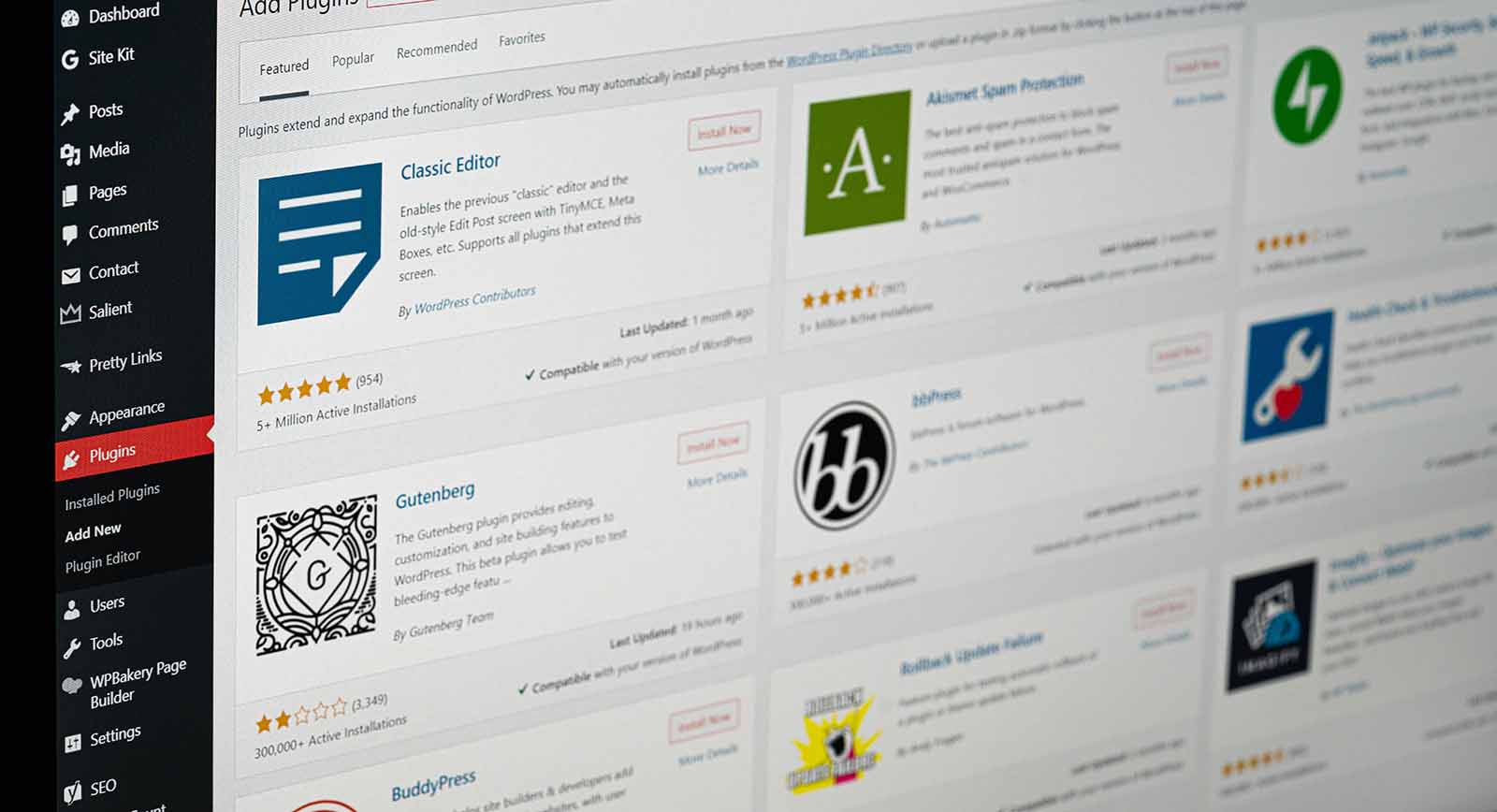Why Wordpress isn't always the answer
Clients frequently begin their conversation with us by stating, “We want a website that can perform such and such… and we'd prefer it to be built in WordPress.” Then we ask, “Why WordPress?” The response is commonly something like, “Well, we've heard it's great.”
And it is good. It's fantastic… if it's appropriate for the project. The problem is that its popularity and reputation have outpaced its suitability. Stone isn't always the best option for building a wall; WordPress isn't suitable for every website.

The pitfalls of WordPress
WordPress’s popularity gives rise to its largest problem: most hackers have it in their sights. To protect itself, WordPress has to be constantly updated. In theory this should be a good thing, except that 3rd party providers of WordPress’s custom features do not always update in time. This might just mean coping with a few annoying bugs, or even breaking the site, but it could also risk sensitive data being compromised.
Another issue is that WordPress is bloated with features, its claims of being able to do
anything mean that it is now impractical for certain simpler tasks. The large amounts of code behind the WordPress system require more hardware power to run—this can lead to longer page-load times, higher hosting costs and a poor user experience. Perhaps your web application does need a lot of the features it offers, but there’s no point wasting fuel on a cumbersome freighter when a nimble hatchback is all you need.
WordPress was originally designed as a blogging platform rather than a universal builder for all websites. The style may limit developers, leaving you with fewer design and functionality options.
Research your other options
Before you rush into a decision, ask yourself the following questions:
- What is the goal of this website?
- Do you intend to update it on a regular basis?
- Are you selling items over the internet?
- Do you require advanced searching?
If your website receive minimal updates, you may not need a content-management system (CMS) like WordPress at all. A hosted solution like Squarespace or Wix offer a slimmed down set of options, but can work wonders for smaller websites. Because the supplier is responsible for maintaining the system and keeping it secure, hacks are less likely and, most-importantly, are not your responsibility.
For a more robust option that has increased flexibility than platforms such as Squarespace and Wix, there is Duda. Duda offers better out-of-the-box performance, with sites optimised to load faster and score higher on a Google PageSpeed test. Duda also offers a better user experience across all devices as it is natively-responsive. Amongst other things it also has better security with free encryption and auto-renewing SSL certificates. We have experience in creating Duda websites and have clients that are impressed with the results.
Ecommerce focussed solutions
If the focus of your website is selling, check out the systems that are specifically designed for this like Shopify or Prestashop. Or if you want something similar to WordPress, there are other CMS systems like Concrete5 or TYPO3, which each offer their own pros and cons. If you want more flexibility or Wordpress doesn’t meet all your requirements, there are further options. Web application frameworks like Symfony or Laravel provide a powerful alternative that empowers the developer with the building blocks to decide how to put it all together—and what bespoke extras to build This method typically speeds up development but does require someone with the necessary skills. It’s like providing a builder with the materials they need to construct a house. You’ll almost certainly need to work with a developer on this one, but it offers incomparable customisation compared with WordPress.
WordPress might be the best option for your website, but before you commit time and money, we recommend consulting a knowledgeable specialist. We would be happy to talk it over with you and find the best solutions for your needs.
Was this article useful?
Please pass it on












